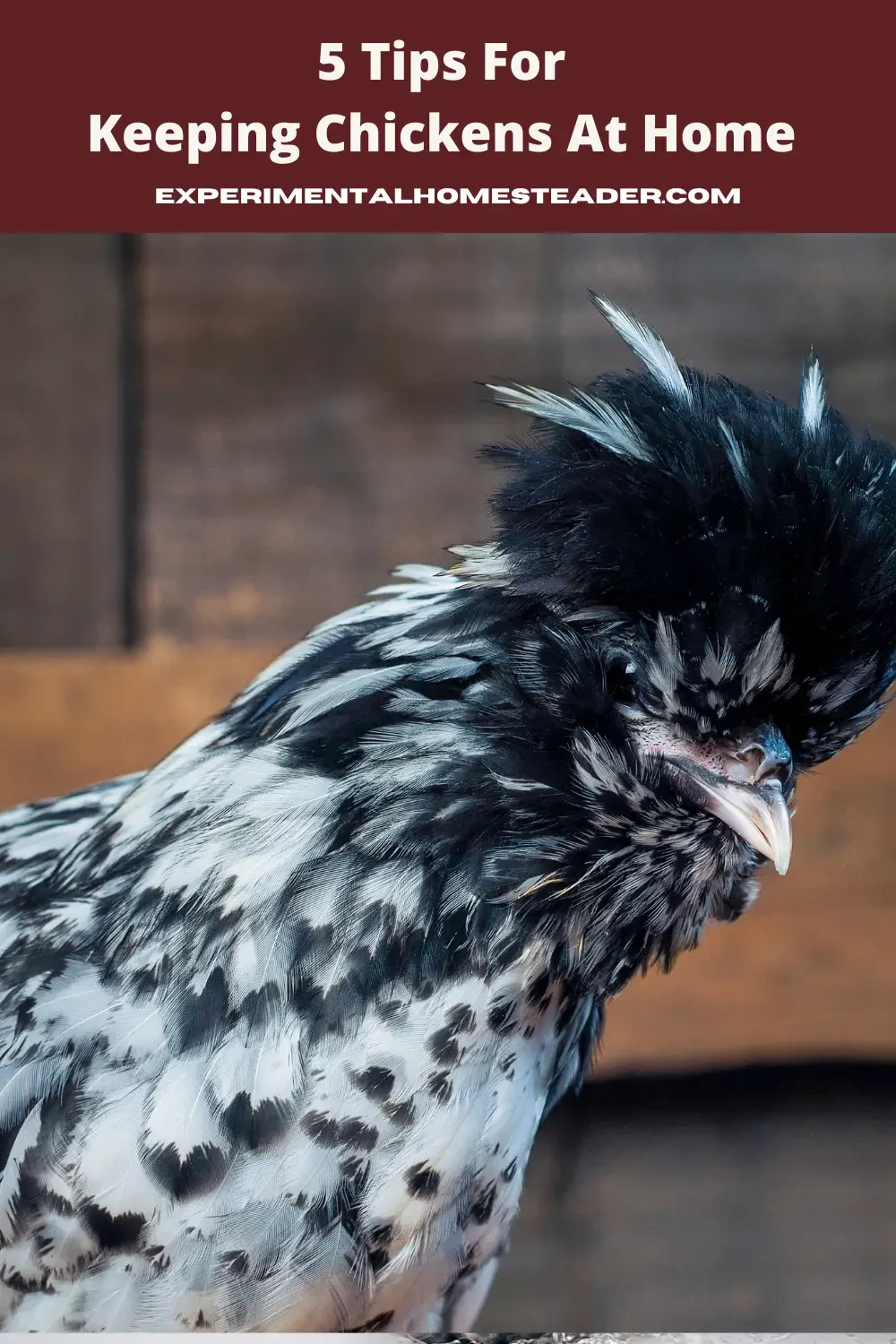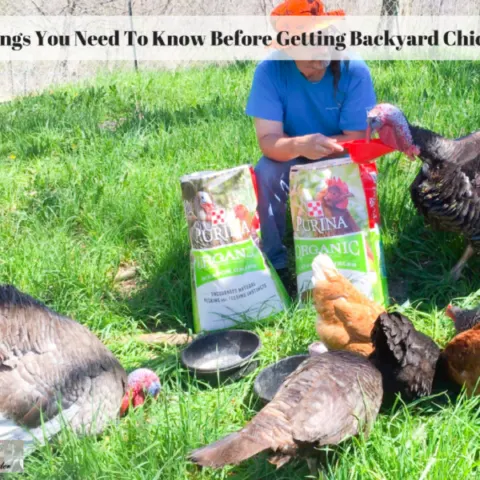Keeping chickens at home is a lot of fun - but it is also a lot of work.
There are a number of things you need to consider before deciding to raise chickens.
Just like any other animal they need shelter and protection from predators.
They need care twice daily and you need to be sure to choose the right breed.
Some chickens are raised for eggs and some for meat. Meat chickens are generally butchered around 6 weeks of age - and don't live the same long life that other breeds do - even if you try.
Shelter And Predator Protection
Chickens need a safe place to sleep at night.
They also need a dark, quiet place to roost so they can lay eggs - or hatch eggs.
Predators are smart - and if they can find a way into your chicken coop or chicken run, they will.
It is a good idea to lock your chicken coop at night, put heavy wire or even grates on your windows and be sure your floor is solid especially around the edges.
Put a roof on top of your chicken run and make sure it is secure at ground level.
While you can take all these precautions and still have a predator problem, doing this more than likely will deter all but the most determined predators.
Don't expect An Egg On A Schedule
There is no rule that says a chicken is going to lay one egg daily every day.
Yes, it is true most chickens do lay daily but sometimes they miss a day - or two.
In the fall the egg production slows down. In the winter it stops all together.
By spring the eggs are starting to be laid again but it is erratic still.
Chickens are smart.
They will hide their eggs in hopes of being able to hatch them.
Some free-range chickens even hide under bushes or in flower beds with their eggs until they hatch.
Don't force your chickens to lay eggs by adding lights and heat.
Let them molt in the winter and lay eggs on nature's schedule.
This leads to happier hens that live a longer life.
Plan to store eggs for the winter months so you always have some on hand.
Fresh Water, Treats And Feed Twice Daily
Chickens need fresh water daily. In the summer - especially on extra hot days - I often refill the water container two to three times - per day.
Make sure the water is clean and keep an extra water container on hand so you can wash up the old one every two to three days.
They do build up algae inside - and there is a addictive you can use to help with this, but believe me, they still need cleaned.
Chickens need fed twice a day - once in the morning, once at night especially in the winter.
The corn helps keep them warm at night.
Proper feeding is important and even though I use a hanging feeder that holds enough food for several days I do check it twice a day just to be sure.
You never know when they might be a little bit more hungry or when another critter might get into it and eat it.
Chickens also love treats.
You can buy these - and sometimes I do - but often I just give them kitchen or garden scraps.
They love weeds, grass clippings, bugs, all kinds of fruits and vegetables.
You can even give them eggs and egg shells.
Now I know you might have heard that encourages them to eat their own eggs, but I have never had a problem with that happening and I do feed mine broken eggs and leftover egg shells.
Keep It Clean - Disease Prevention
Keep your chicken coop and your chicken run clean.
I clean mine once a week in the summer - and more often in the event that I notice a mess.
During the winter we let the mess in the chicken coop build up but make sure to cover it up with fresh bedding and remove any wet areas or areas that are extremely messy.
We use diatomaceous earth, an organic odor preventative made with essential oils and a coop composting product made to help break the chicken coop poop down into compost.
This controls the smell.
The reason I let the mess build up in the winter is to provide a source of natural heat for my chickens.
I live in a cold climate and opt to do this instead of providing supplemental heat such a heat lamp or small heater that they could knock over and start a fire with.
Be sure to keep the chicken run clean too.
Sometimes you have to muck it out just like you do the chicken coop.
Keeping the area clean where your chickens roam and live is the best way to help prevent disease.
Choose The Right Breed
There are chickens that are raised for egg production, chickens that are raised solely for meat production and those that lay eggs and can also be butchered for meat.
Chickens that are raised solely for meat need to be butchered when they are about six weeks old.
They get too fat too fast and if you try to keep them you end up with a dead chicken.
Their legs break, their hearts explode - they simply are not meant to be long term pets.
Some chicken breeds live a long time as long as they are cared for, so choose a breed that provides you with what you want - eggs, meat or simply a pet that lives a long time.
I have a mix of chickens so I get the best of everything - meat and eggs.
Do you have questions?
I invite you to leave your comments below.
Chicken Care Tips
6 Things You Need To Know Before Raising Backyard Chickens
Raising backyard chickens is enjoyable. Learn what you need to know about caring for chickens before you begin raising chickens in your backyard.
Getting Started With Chickens � Experimental Homesteader
One of the easiest animals to start raising on the homestead is chickens. In this episode we will explore the advantages of raising chickens, problems that can arise from raising chickens and how to keep your chickens healthy.







